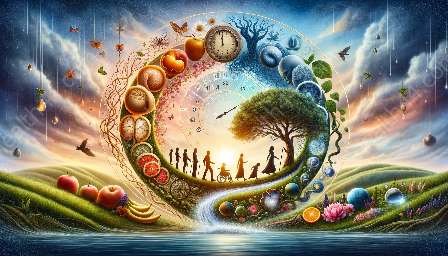As individuals age, the impact on reproductive health becomes more profound, leading to challenges such as age-related infertility. In this comprehensive guide, we delve into the intricacies of age-related infertility, its implications, and its intersection with reproductive health, shedding light on the factors contributing to this phenomenon and ways to maintain optimal reproductive well-being.
Understanding Age-Related Infertility
Age-related infertility, also known as reproductive aging, refers to the decline in fertility as individuals grow older, particularly affecting women in their late 30s and beyond. This decline is attributed to various physiological and environmental factors, including changes in reproductive hormone levels, decreased ovarian reserve, and an increased risk of chromosomal abnormalities in the eggs, ultimately impacting the ability to conceive naturally.
Impact on Reproductive Health
Age-related infertility has significant implications for reproductive health, affecting both men and women. For women, advancing age is associated with decreased egg quality and quantity, making it more challenging to achieve pregnancy. Additionally, the risk of pregnancy complications, such as miscarriage and chromosomal abnormalities in offspring, increases with age. In men, aging can lead to decreased sperm quality and motility, contributing to fertility issues and a higher likelihood of genetic anomalies in offspring.
Factors Contributing to Age-Related Infertility
Several factors contribute to age-related infertility, encompassing physiological, lifestyle, and environmental elements. Hormonal changes play a pivotal role, particularly in women, as the decline in estrogen and progesterone levels impacts the menstrual cycle and ovulation. Other factors include the gradual decline in ovarian function, increased risk of chronic health conditions, such as diabetes and obesity, and lifestyle factors like smoking, excessive alcohol consumption, and poor dietary habits, all of which can exacerbate reproductive aging.
Maintaining Reproductive Health in Relation to Aging
While age-related infertility presents challenges, there are strategies to optimize reproductive health as individuals age. Regular health screenings and consultations with reproductive specialists can provide valuable insights into one's fertility status and potential interventions. Embracing a healthy lifestyle, including a balanced diet, regular exercise, and stress management, is instrumental in supporting reproductive well-being. Furthermore, staying informed about advancements in assisted reproductive technologies, such as in vitro fertilization (IVF) and egg freezing, offers options for individuals seeking to preserve their fertility as they age.
Conclusion
Age-related infertility is a complex and multifaceted issue that profoundly affects reproductive health. By understanding the intricacies of this phenomenon, individuals can take proactive steps to preserve their fertility and overall reproductive well-being as they navigate the journey of aging. Embracing a holistic approach to reproductive health, encompassing medical guidance, lifestyle modifications, and awareness of available fertility preservation options, empowers individuals to navigate the challenges of age-related infertility with resilience and informed decision-making.


